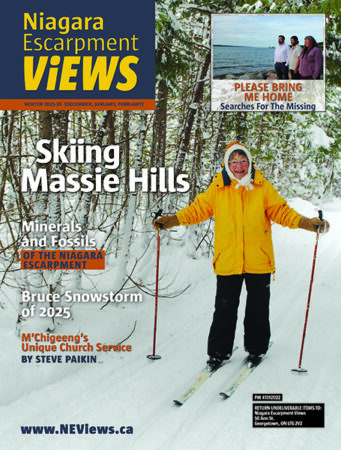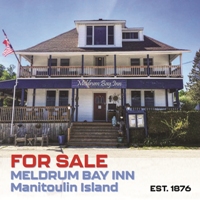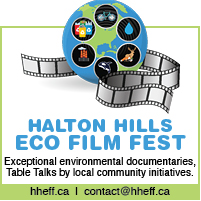This is the continuation of the post called “The Generosity of Cuban People.”
After the motor scooter accident, I was relieved to see the ambulance. After waiting more than two hours with a bleeding hole in my knee, I looked forward to being put on a soft stretcher and getting some immediate attention. Like maybe a little tranquilizer to make me feel better. And the attendants would start cleaning and bandaging my knee right away.
I had to climb up into the side door of the ambulance. Inside, it looked like something from World War I. The iron stretcher looked barely padded, with no linen on it. It looked so uncomfortable that I sat on the first hard seat available, which faced the back.
A handsome, very young man with a stethoscope around his neck sat in the back with me. He looked so young and shy that I suspected he wore the stethoscope only to make people think he was a doctor. He asked, in English, if he could see my knee. I tried to say, in Spanish, that there would be a lot of blood and he would need bandages. He rummaged through containers on an old metal storage rack, but there weren’t any bandages, and no supplies of any kind. “Let’s go,” I said in Spanish.
The drive was bone jarring and teeth chattering. Out the back window, far in the distance, I could see Mike on the scooter, following me to the hospital two towns away. About half an hour later, we arrived at the hospital.
I sank gratefully into a rickety iron wheelchair of the same vintage as the ambulance. “First, the washroom,” I demanded in Spanish, because I had not dared to use the outhouse in the chicken yard. I thought it would be wise to wait for the hospital.
There was no chicken manure in the hospital washroom, but it did not meet my North American expectations. Dirt and grime stained the floor and in the middle of the room yawned a toilet bowl. But no seat. I rapidly took stock of the room and asked for toilet paper. Staff members looked at each other, puzzled, and shook their heads. No toilet paper.
I straddled the toilet bowl, hoping my aim was true, my wounded knee shaking as I squatted, then gave a couple of shakes to air dry my nether region, and pulled up my pants. No sink to wash my hands. Back into the wheel chair and I was rolled into an operating room.
Two stainless steel tables were on the left side, but right in front of me on a stretcher was a corpse. At least I thought so, until the man moved. He was as thin as a skeleton, with shoulder and collar bones painfully visible. As I was rolled close to one of the tables, I saw the man wince as a catheter was put into his body. Now I’ve seen everything, I thought.
I climbed onto a table that had a channel running down the middle to drain blood and fluids away. I thought it was an autopsy table. The young man from the ambulance, clearly now a real doctor, looked at my wound, but needed bottles of liquid to get the cotton wool out. When the hole in my knee was revealed, all the staff leaned in for a look, then pulled back, shaking their heads, making tsking sounds and speaking Spanish. I was not comforted by this.
Suddenly Mike was at my side, being looked after. He disappeared for an X ray but was back soon. I saw bottles labelled Novocaine being passed to the young doctor. “Tequilla?” I asked for, and the staff laughed. I wasn’t kidding. The nurse beside me told me in Spanish that they didn’t have any. I would have liked some gas, maybe a little nitrous oxide. I got nothing. I lay down and grabbed Mike’s hand. “Talk to me,” I begged, but engineer Mike was speechless, so I closed my eyes and tried to pray as needle after needle poked deeply into the torn flesh around my gaping wound. I managed some of The Lord’s Prayer before drawing a blank and switching to some of the Hail Mary. I could have used a bottle of brandy and a priest. The room was full of hospital staff craning to look at my knee. I was not comforted by this.
The thing about Novocaine is that it seems to take full effect after the procedure is over. So I felt the stitches going in. I jerked my leg and the staff murmured and the nurse said in Spanish that it would be better if I kept my leg limp. So I kicked out with my other leg.
The nurse said, and acted out, that they wanted me to get an antibiotic injection in my behind. Years ago, I had been with my friend Seana in Mexico when she got a horse needle in her butt and she had screamed. I knew better now. I clasped my hands together in horror and begged “Madre de Dios, no injection!” The staff laughed and hooted. Oh, I was entertaining.
The doctor said I needed an X ray because he could see the bone and it could be broken. And if it was broken I’d have to go to the nearby city of Holguin to see an orthopedic surgeon. I was wheeled to the X ray machine, which looked pristine and new. I lay on my back on the glass table as the X ray was taken. Staff re-entered the room and mimed for me to turn over. “Onto my front?” I asked incredulously, thinking how much it would hurt my knee to lie on it. Si, they nodded. Not knowing how to say “torture” in Spanish, I blurted out “Guantanamo Bay!” The staff hooted again. But as I started to roll onto my knee they stopped me. They only needed to X ray the side of my knee.
Neither Mike nor I had broken bones. I would have to take antibiotic pills and anti-inflammatories and pain killers. I was wheeled outside the hospital and watched the ambulance drive off. Only a few moments later, the ambulance returned and packages of drugs were put in my hands. Hospital staff had gone to the pharmacy for me.
And get this: although Mike and I had arrived in Cuba with mandatory medical insurance, we were not required to pay or even show our insurance cards, although Mike did offer his. I even asked my young doctor about paying and he squinted and shook his head. “No dineros,” he said.
That seems to be how Cuban healthcare works. Free ambulance transport. Free emergency care. Free drugs. They even drove me in the rattling ambulance back to our resort. Mike said he wished they had charged some money so they could buy some medical supplies.
Next: How we thanked our rescuers.





4 Comments
Dear Gloria,
This tale get’s more harrowing with each installment. I love your responses and their reactions.
I spent a week there a year ago, and will concur that for the most part the people who take care of tourists are first rate, warm and appear to be sincerely concerned for your welfare.
God bless ’em.
Chris
So true, Chris. I hope that wasn’t my last visit to Cuba, although it was the last scooter trip of my life. Cuba was a pleasant surprise. Thanks for adding to the discussion.
Hi Gloria,
Thanks for sharing your jaw-dropping story. I can’t believe that, despite all the pain you were experiencing, you managed to make the medical staff laugh.
In his movie “Sicko,” Michael Moore brings to light some remarkable differences between the healthcare system in the United States and the one in Cuba. It was interesting to hear about your experience. The people who attended to you were so kind and caring.
All the best as you continue to heal.
Indeed, Julia! Moore’s great film was in my mind a lot at the time. Especially when I thought of Guantanamo Bay. He is such an eye-opening filmmaker. Thanks for your good wishes.